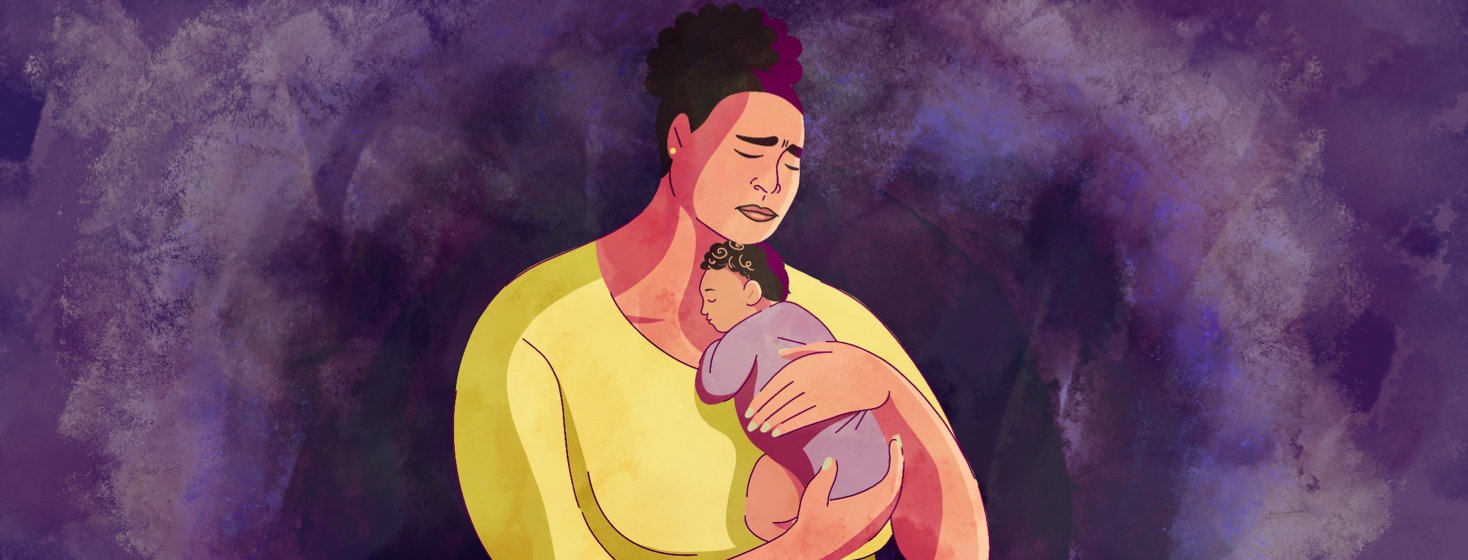Mother-to-Infant Bonding and Postpartum Depression
Some mothers will feel an instant, deep bond with their baby. But this may not happen immediately for all parents. Not having an instant bond is very normal. For many parents, this bond can take longer to form.1,2
Some factors can cause mothers to have difficulty bonding with their baby. A link between not feeling bonded with your baby and postpartum depression (PPD) exists.1,2
What is mother-to-infant bonding?
Bonding is the name for the selfless love that forms between you and your baby. These feelings often start when you are pregnant. After the child’s birth, they continue to develop. This forms the foundation of your relationship with your baby.1,3
This bond is also important for the baby. Research shows how your bond impacts the child’s long-term:1,3
- Emotions
- Mental health
- Behavior
How can PPD interfere with bonding?
Giving birth severely impacts your hormone levels. Most mothers will feel strong emotions in the weeks following childbirth. These emotions are sometimes called the "baby blues." You may feel:1,2
- Sad
- Weepy
- Anxious
PPD is not the same as the baby blues. The baby blues that last longer than 2 weeks could be a sign of PPD. PPD does not go away on its own and can be severe.1,2
PPD can make bonding with their new babies harder for mothers. One study found that about 60 percent of women with PPD had a hard time bonding. PPD can interfere with routines like breastfeeding or getting enough sleep. These routines have roles in bonding. Also, depression can make mothers less patient and become more easily upset. These emotions can harm bonding by distancing mothers from their babies.3,4
But this does not mean that PPD is always involved with bonding issues. Some people with PPD have no problems bonding with their babies. People without PPD can also face bonding challenges.2
Strategies for connecting with your baby
Skin-to-skin contact right after birth and breastfeeding can help you bond with your baby. But do not worry if these are not possible for you. They are not the only ways to bond.1
Like a relationship with anyone, the bond with your baby should get stronger with time. Interacting with your baby can help you bond, such as:1
- Talking to your baby
- Touching or stroking your baby’s skin
- Having eye contact with your baby
- Comforting your baby when it cries
- Holding your baby
One of the most important factors in growing your bond is having sufficient support. Support can come from:1,3
- Friends
- Family
- Healthcare professionals
Help with childcare can ensure you get enough sleep and breaks. Having emotional support can help ease your fears and anxiety. If your emotional and physical needs are met, you will be better suited for bonding.1,3
Even if you do all these things, it can still take time for the bond to grow. This is very normal. Try to be patient and not feel guilty. Having a slow-forming bond or reaching out for help is not something to be ashamed of.1,3
Take note if your baby blues do not go away within a few weeks. This can be a sign of PPD, and you should contact a healthcare provider. Contact a mental health professional right away if you have thoughts of harming yourself or your baby.1,3
